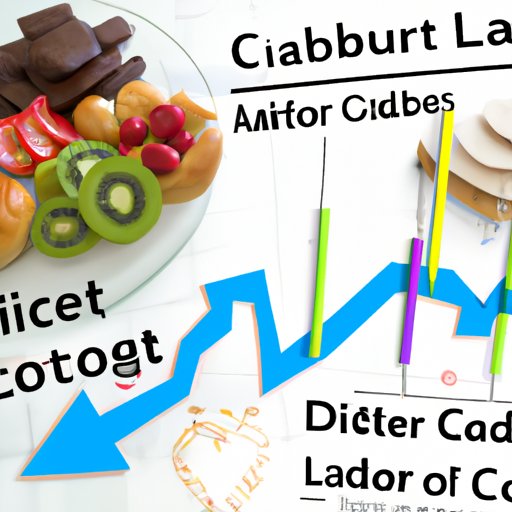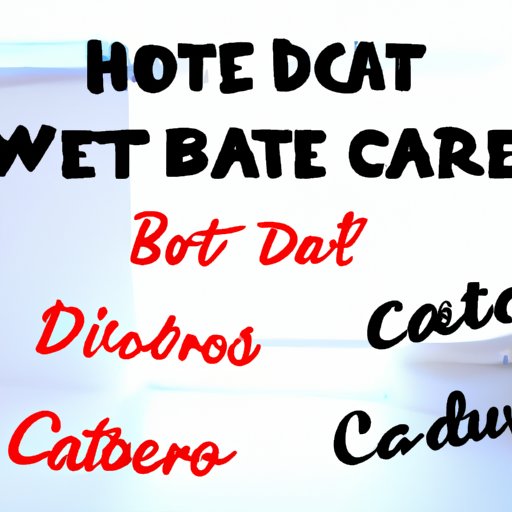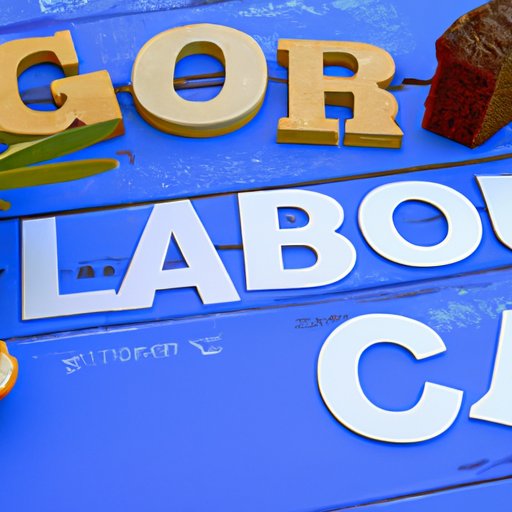Introduction
Low carb diets are becoming increasingly popular as a way to lose weight quickly. But do they really work, and are they safe? In this article, we’ll take a look at why low carb diets can be bad for you, and discuss some healthier alternatives.
Definition of Low Carb Diets
A low carb diet is one that restricts carbohydrates, such as bread, pasta, rice, and potatoes. Instead, it focuses on foods high in protein, fat, and other nutrients. Depending on the type of low carb diet, you may also limit your intake of fruits and vegetables.

Reasons why People Try Low Carb Diets
There are several reasons why people might choose to follow a low carb diet. Firstly, it can help you to lose weight quickly, as it reduces your calorie intake. Secondly, it can help to reduce your risk of certain diseases, such as diabetes and heart disease. Finally, some people find that it helps them to feel more energetic and alert during the day.
How Low Carb Diets Affect Your Health
Although there are some potential benefits to following a low carb diet, it’s important to consider the potential risks as well. Here are some potential side effects of a low carb diet:
Potential Side Effects of a Low Carb Diet
• Constipation: Low carb diets may lead to constipation due to their lack of fiber. Fiber helps to keep your digestive system regular and healthy.
• Headaches: Low carb diets can cause headaches due to dehydration and changes in electrolyte balance. This is because you’re cutting out sources of electrolytes, such as fruits and vegetables.
• Fatigue: Low carb diets can cause fatigue due to inadequate energy from carbohydrates. This can be especially true if you’re engaging in intense physical activity.
• Nausea: Low carb diets can cause nausea due to changes in the body’s metabolism. This is because the body needs time to adjust to using fat instead of carbohydrates as its primary source of energy.
The Pros and Cons of Low Carb Diets
Low carb diets can have both positive and negative effects. On the plus side, they can help you to lose weight quickly, and may reduce your risk of certain diseases. On the downside, they can cause unpleasant side effects, and may not be sustainable in the long term.
The Risks of Long-term Low Carb Diets
Long-term low carb diets can lead to nutritional deficiencies and increased risk of certain health problems. These include an increased risk of kidney stones, gout, and bone loss. They can also make it difficult to get enough vitamins and minerals, as many of these are found in carbohydrate-rich foods.

The Impact of Low Carb Diets on Blood Sugar Levels
Low carb diets can also have an effect on blood sugar levels. When carbohydrates are restricted, the body breaks down stored fat for energy, leading to an increase in ketones. Ketones can affect blood sugar levels, leading to potentially dangerous swings in glucose levels.
What Happens to Blood Sugar Levels During Low Carb Dieting
When you start a low carb diet, your body will begin to break down stored fat for energy. This process leads to an increase in ketones in the bloodstream, which can cause your blood sugar levels to drop. Over time, your body may become less sensitive to insulin, making it harder to maintain healthy blood sugar levels.

Complications with Low Carb Diets and Blood Sugar
Low carb diets can be particularly risky for people with diabetes, as they can cause dangerously low blood sugar levels. People with diabetes should always speak to their doctor before starting a low carb diet.
The Benefits of Eating Healthy Carbs
While low carb diets can be effective for weight loss, they don’t necessarily provide the best nutrition. Healthy carbohydrates, such as fruits, vegetables, whole grains, and legumes, provide essential vitamins and minerals, as well as fiber. Eating these types of carbs can help to keep you feeling full and energized.
How Healthy Carbs Help You
Healthy carbs provide essential nutrients, such as vitamins, minerals, and fiber. They can also help to stabilize your blood sugar levels, preventing spikes and dips in energy throughout the day. Finally, eating healthy carbs can help to keep you feeling full for longer, which can prevent overeating and cravings.
Sources of Healthy Carbs
Healthy carbs can be found in a wide variety of foods, including fruits, vegetables, whole grains, legumes, nuts, and seeds. It’s important to focus on whole foods rather than processed carbs, as these contain more fiber and other beneficial nutrients.

What to Eat Instead of Low Carb Diets
If you’re looking for an alternative to low carb diets, there are plenty of healthy options. Here are some foods to avoid on low carb diets, and some foods to include in place of them:

Foods to Avoid on Low Carb Diets
• Refined grains, such as white bread, white rice, and pasta
• Processed sugars, such as candy, soda, and pastries
• Refined oils, such as vegetable and canola oil
• High-fat meats, such as bacon and sausage
• Fried foods, such as French fries and fried chicken
Foods to Include in Place of Low Carb Diets
• Whole grains, such as oats, quinoa, and brown rice
• Fruits, such as apples, oranges, and berries
• Vegetables, such as broccoli, spinach, and kale
• Legumes, such as beans, lentils, and chickpeas
• Healthy fats, such as olive oil, avocado, and nuts
Conclusion
Low carb diets can be effective for short-term weight loss, but they can come with serious health risks. They can cause unpleasant side effects, and may lead to nutritional deficiencies in the long run. It’s important to consider the potential risks before starting a low carb diet, and to consult your doctor if you have any concerns.
Instead of following a low carb diet, it’s generally better to focus on eating healthy carbs, such as fruits, vegetables, and whole grains. These provide essential nutrients and can help to keep you feeling full and energized. By eating a balanced, nutritious diet, you can achieve your health and weight loss goals without sacrificing your wellbeing.
Summary of Low Carb Diets
Low carb diets can help you to lose weight quickly, but they come with potential risks. These include constipation, headaches, fatigue, nausea, and long-term health complications. Low carb diets can also cause dangerous fluctuations in blood sugar levels. It’s important to consider the potential risks before starting a low carb diet.
Final Thoughts on Low Carb Diets
Low carb diets can be effective for weight loss, but they can also be dangerous. It’s important to consider the potential risks before starting a low carb diet, and to speak to your doctor if you have any concerns. Eating a balanced, nutritious diet is generally the best way to achieve your health and weight loss goals.
(Note: Is this article not meeting your expectations? Do you have knowledge or insights to share? Unlock new opportunities and expand your reach by joining our authors team. Click Registration to join us and share your expertise with our readers.)
